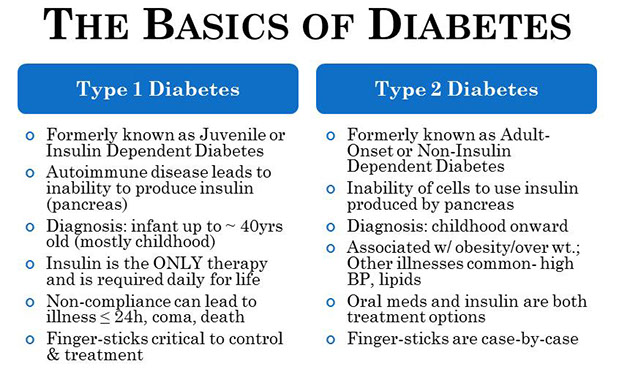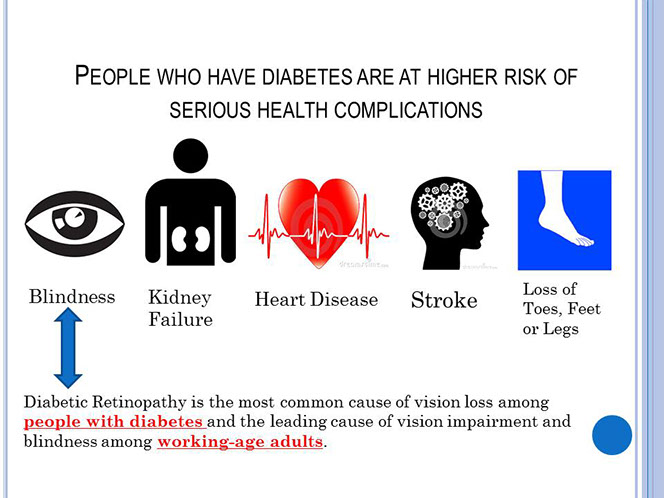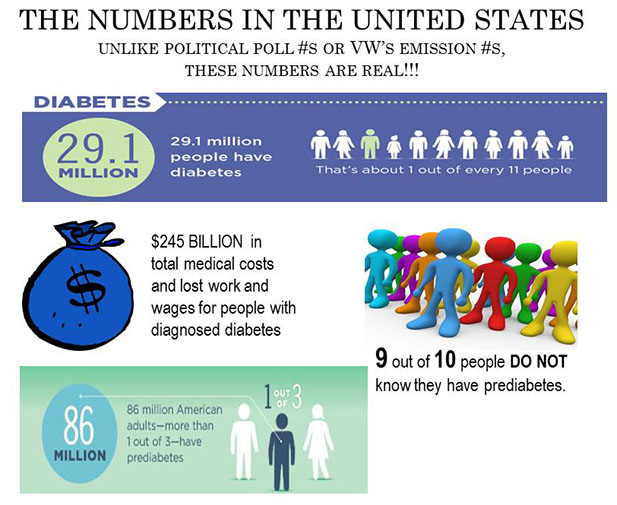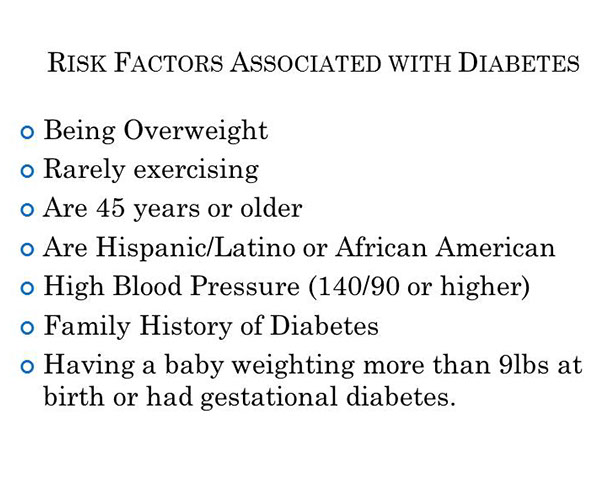Diabetes Awareness
Diabetes is a serious, costly, and increasingly common chronic disease that can have serious complications including heart disease, kidney failure, leg and foot amputations, and blindness, which can result in disability and premature death. Proper and timely medical treatment, however, can reduce the burden of diabetes.
Because diabetes is understood to have a close link to vision impairment, Lions Vision Screenings and an associated Diabetes Awareness Program conducted under the Lions Eye Health Program, (LEHP) can offer a vivid connection to the impact that Diabetes can have. A visit to the Mobile Eye Screening Unit can serve as a wakeup call to encourage clients to strongly consider scheduling follow up, comprehensive eye examinations where a road to treatment can begin and where a potential exists to learn if other chronic conditions may be present.
In our community, finding a means to educate and call greater attention to diabetes is keenly important. In Metropolitan San Antonio, 300,000 people are diagnosed diabetics and an additional 115,000 are as of yet, undiagnosed. In Bexar County, nearly one third (31%) of residents age 65 or older and 16% of those ages 45-64 have had a diabetes diagnosis.
Since the Vision Screening Program began in 1996, many of the 70,000 individuals that have been screened continually report that, if they can recall having a comprehensive eye examination, it had been at least five to seven years prior. Strikingly, only a small percentage of those that know that they have Diabetes, have annual examinations done by eye care professionals.
People with diabetes are 40% more likely to suffer from glaucoma than people without diabetes. The longer someone has had diabetes, the more common glaucoma. Many people without diabetes get cataracts, but people with diabetes are 60% more likely to develop this eye condition. People with diabetes also tend to get cataracts at a younger age and have them progress faster. Diabetic retinopathy is a general term for all disorders of the retina caused by diabetes. Over time, a majority of diabetics will suffer some degree of diabetic retinopathy and many may become blind. The CDC projects that U.S. cases of Vision Threatening Diabetic Retinopathy will triple in 2050 to 16 million. But being aware of the condition and seeking the proper treatment can greatly slow devastating effects.
The American Diabetes Association explains that people with diabetes do have a higher risk of blindness than people without diabetes. But with regular checkups, you can keep minor problems minor. And if you do develop a major problem, there are treatments that often work well if you begin them right away.
Below are some helpful facts and information about Diabetes.


















